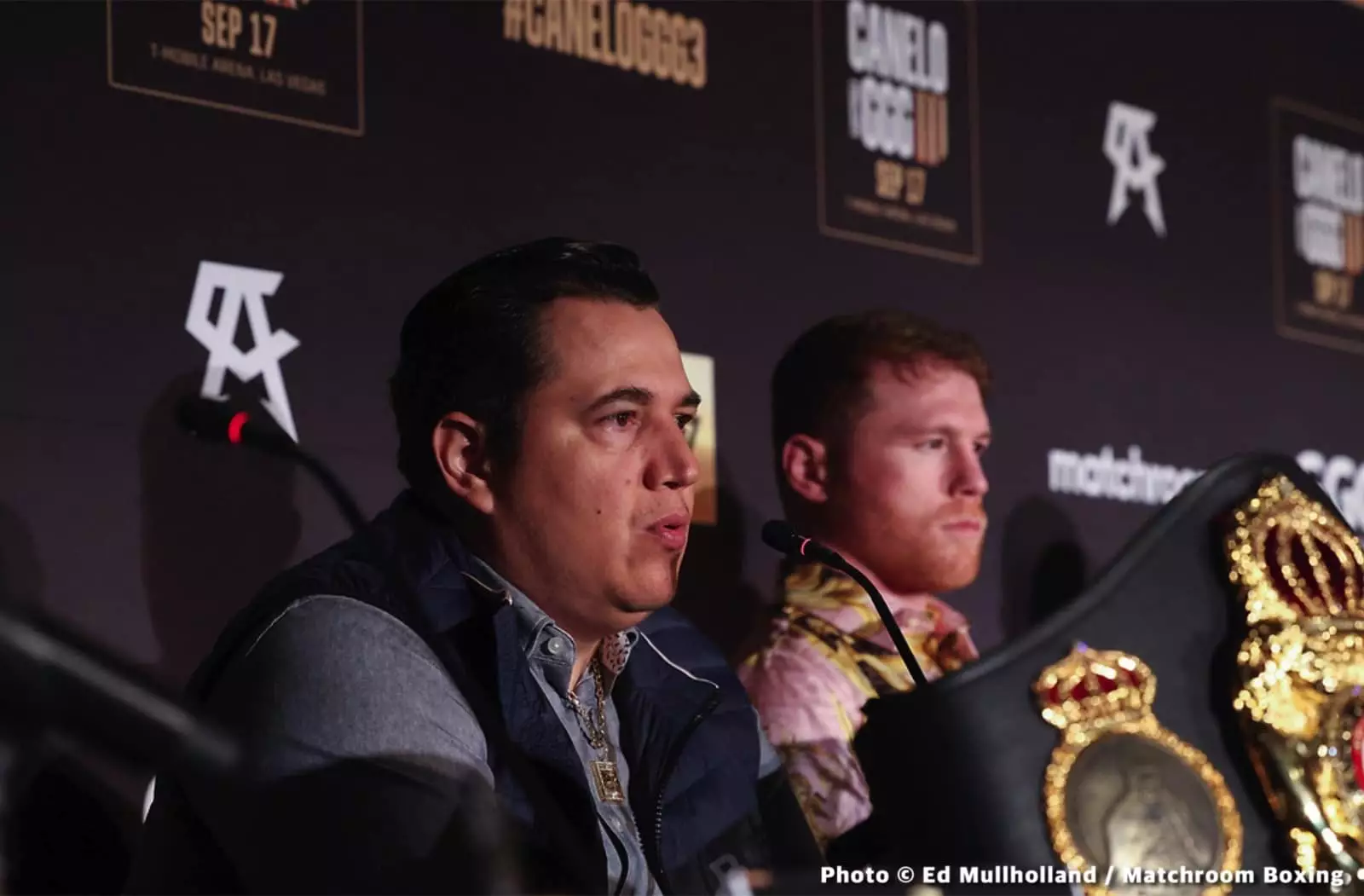Boxing, often regarded as a sport of skill, courage, and resilience, is currently embroiled in a crisis centered around integrity and moral credibility. When allegations of doping tarnish a fighter’s reputation, it inevitably casts a shadow over their entire team, raising uncomfortable questions about the standards maintained behind the scenes. Eddy Reynoso, a revered figure in boxing, finds himself at the heart of this controversy. His recent public stance highlights something more profound than just defending his reputation; it underscores a fundamental debate about ethics in sports and the importance of unwavering commitment to fair play.
This controversy demonstrates how the reputation of a trainer or manager can be unjustly compromised by association. Reynoso’s insistence that he was not involved in the recent failed drug tests, particularly with fighters like Jaime Munguia and Francisco Rodriguez, reveals a game of perception versus reality. His statement emphasizes a clear boundary—distancing himself from any doping involvement and emphasizing that he does not control his fighters’ nutritional or supplementary choices. Nonetheless, the mere mention of his name in such contexts fuels suspicion and underscores how fragile trust can be in a sport where reputation is everything.
Furthermore, Reynoso’s expressed support for drug testing and clean boxing adds a layer of moral authority to his stance. But words alone, especially in an era where transparency is demanded, may not suffice. The sport’s credibility hinges on tangible actions—consistent, rigorous drug testing protocols, transparent investigations, and a communal commitment to integrity. Reynoso’s words are positive, but they must be backed by a comprehensive culture of honesty woven into the fabric of boxing. Without demonstrable evidence and unwavering accountability, accusations, whether true or unfounded, threaten to erode the sport’s integrity further.
Leadership and Responsibility in Handling Allegations
The crux of the matter lies in how figures like Reynoso navigate accusations within a highly scrutinized environment. His effort to clarify that he was not involved in Rodriguez’s fight, along with his assertions about not managing fighters’ diets or supplements, highlights the blurred lines that often exist between roles in sports management. It raises critical questions: who truly bears responsibility for maintaining a doping-free environment? Is it solely the athlete, or does the coach hold a significant ethical obligation?
In many ways, Reynoso’s public declaration signifies a leadership move, rallying for accountability and transparency. However, it also exposes the inherent vulnerabilities in how modern boxing operates—where public perception is often influenced by hearsay, social media, and speculative narratives. The sport desperately needs a paradigm shift, emphasizing proactive integrity measures over reactive damage control. Should trainers like Reynoso be more involved in monitoring fighters’ nutrition? Or is such involvement beyond their scope, placing the burden squarely on regulatory bodies?
Leadership in these circumstances should not just aim to dispel allegations but to foster an environment of unwavering integrity. It also calls for the sport’s governing bodies to establish stringent, independent oversight mechanisms. Only through such systemic reforms can a culture of clean competition genuinely take root, restoring trust not only in individual trainers but across the sport as a whole.
The Essence of True Sportsmanship
Ultimately, this controversy underscores a universal truth: trust is earned through consistent actions, not mere words. Reynoso’s declaration that he supports clean boxing is commendable, yet it’s the consistent application of ethical practices that will define his legacy. Every fighter he trains, every decision made behind the scenes, and every step taken to promote transparency contribute to a broader narrative—one that either upholds the sport’s noblest ideals or shatters them.
The broader implication is clear: in boxing, reputation is a fragile veneer that can be shattered in an instant. Coaches and trainers carry a moral weight, entrusted not only with developing athletic talent but also with safeguarding the integrity of the sport. For Reynoso and others like him, advocacy for clean sport must entail more than words—it must be reflected in every facet of their professional conduct.
The enduring challenge for boxing today is to transform these turbulent moments into catalysts for genuine reform. By fostering an environment where integrity reigns supreme and accountability is non-negotiable, the sport can move past fleeting scandals and rebuild a foundation of enduring respect and trust. Only then can boxing truly embody the virtues it claims to champion—courage, honesty, and resilience—both inside and outside the ring.

